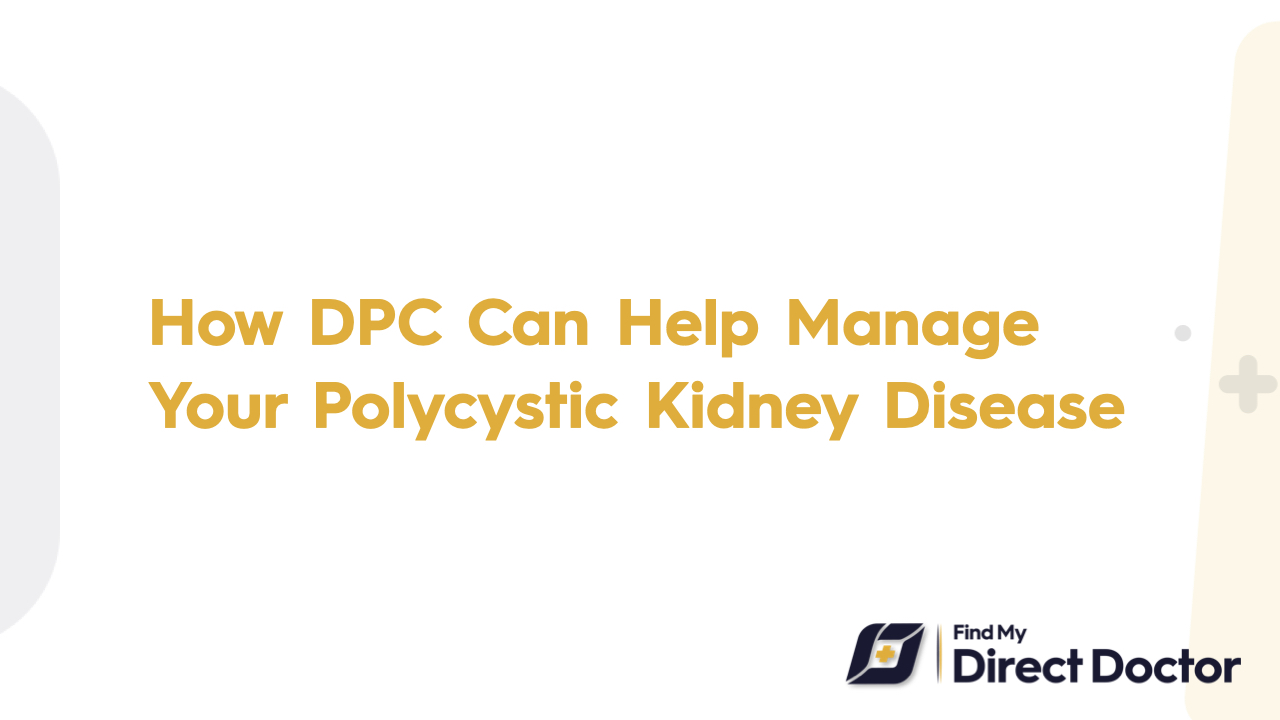



A genetic condition known as polycystic kidney disease (PKD) is typified by the development of fluid-filled kidney cysts, which over time may cause the kidneys to expand and perform less well. Numerous symptoms, such as high blood pressure, headaches, back or side pain, blood in the urine, frequent urination, and kidney stones, can be brought on by the illness. Renal failure may result from the cysts' disruption of renal function as they enlarge. Early diagnosis and treatment are essential to reducing the progression of PKD because it frequently worsens gradually over time and some people eventually acquire end-stage kidney failure.

Because it provides ongoing, individualized care, Direct Primary Care (DPC) can be a useful tool in the management of polycystic kidney disease. DPC makes it possible to check blood pressure and kidney function more frequently, both of which are crucial for controlling PKD. DPC improves patient access to medical professionals, allowing for prompt interventions and treatment plan modifications. DPC provides a more comprehensive approach to managing PKD because it can affect several body systems. This includes working with experts like nutritionists and nephrologists to address every facet of care.
Patients with polycystic kidney disease can benefit from DPC's improved accessibility and individualized care. With DPC, patients can talk to their doctors for longer periods of time about issues related to blood pressure management, kidney function, and pain management. DPC's regular examinations aid in identifying such issues early on and halting additional kidney damage. Furthermore, DPC places a strong emphasis on preventative care, assisting patients in controlling risk factors like high blood pressure and UTIs, which can greatly enhance PKD patients' quality of life and long-term results.
The goal of DPC's personalized management of polycystic kidney disease is to customize treatment regimens to each patient's unique requirements. This involves blood pressure control, dietary modifications to promote kidney health, and routine monitoring of kidney function using imaging and blood testing. Additionally, DPC facilitates open communication between the patient and the doctor, guaranteeing that treatment plans are tailored to the patient's particular lifestyle and health objectives. DPC helps PKD patients better manage their condition by providing a more individualized approach to care, which enhances their general health and slows the course of kidney disease.
Previous Post